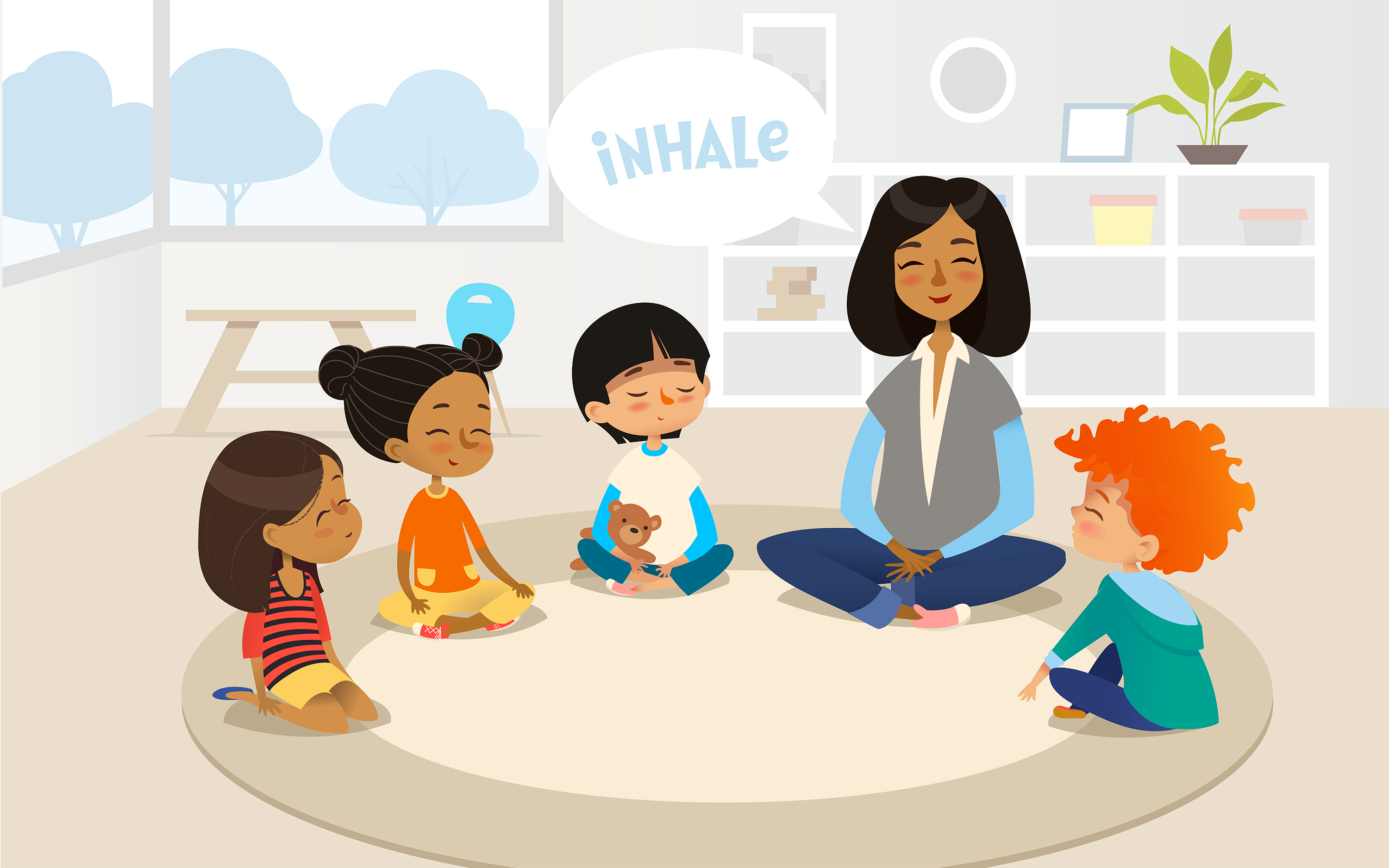In recent years, mindfulness education has become a mainstay in many schools. However, we know little about how it affects students’ developing brains or their academic performance.
Two new studies from Yale and Harvard Universities and MIT shed some light on the question, finding that mindfulness may reduce emotional reactivity in the brain as well as improving mental health and academic success for middle-school students.
Mindfulness Boosts Emotional Well-Being in Teens
In the first study of its kind, MIT researchers showed that mindfulness training may alter brain functioning linked to emotional processing in sixth-grade students. Published in Behavioral Neuroscience, the study included a subset of about 40 middle schoolers who participated in a trial comparing the effects of eight weeks of either daily mindfulness training or “coding” instruction.
The mindfulness program was adopted by Calmer Choice (an organization aiming to teach young people how to better manage stress) to be appropriate for middle-school students. It emphasized attention training and strategies for coping with stress, negative moods and unhealthy attitudes.

On the other hand, coding training provided children with computer programming instruction, with a focus on creative thinking, reasoning, and collaboration.
Before and after training, students looked at pictures of faces expressing different emotions while undergoing a brain scan. Researchers honed in on the amygdala, a brain region involved in processing emotion.
As expected, students who reported more stress before training also had greater amygdala activity while viewing fearful faces. This supports previous findings that activity in the amygdala increases when we’re feeling stressed or are dealing with intense emotion.
After mindfulness training, however, these students had less amygdala activation while viewing fearful faces, and reported feeling less stressed. This suggests that mindfulness instruction may help to buffer the brain’s reactivity to stress and decrease negative emotion in middle schoolers.
Mindfulness Improves Academic Success in Teens
In the second study, published in Mind, Brain, and Education, researchers administered a mindfulness questionnaire to a diverse sample of over 2,300 fifth- to eighth-grade students, enrolled in charter schools in Boston. They then correlated these ratings with students’ academic records.
They found that higher mindfulness scores were linked to a higher grade point average, greater achievement in standardized tests of math and literacy, and better academic performance overall from one year to the next. More mindfulness was also tied to better school attendance, fewer suspensions, and enhanced academic performance from one year to the next.
Higher mindfulness scores were linked to a higher grade point average, greater achievement in standardized tests of math and literacy, and better academic performance overall from one year to the next.
What this study tells us is that there may be a link between mindfulness and academic performance. Because students did not receive mindfulness instruction, it does not show that learning mindfulness at school improves student achievement or reduces behavior problems.
Some evidence, however, has suggested that mindfulness in schools may be beneficial. A prior study examining the effects of an adaptation of Mindfulness-Based Stress Reduction (MBSR) for 300 fifth- to eighth-grade students in inner-city Baltimore found that students receiving mindfulness instruction reported fewer psychological symptoms and less stress than their peers who received a health education program.
Although these findings are promising, we have much more to learn about the impacts of mindfulness instruction for children and teens. Whether these effects lead to sustainable changes in brain activity is a question for future research.
Bringing Mindfulness into Your School
If you’re trying to bring this into a school, or into an organization, you find the person most likely who’s going to be open to it, and you start there. Maybe, you just start in that one classroom. Find a Mindfulness Ally I have a friend, she’s a nutritionist and…
Read More
Teaching Students to Breathe
We want our students to bounce back from adversity—to be able to get up, and try. And there are three things that really are related to our ability to bounce back. One of them is, how extreme is the adversity? The more extreme, the more difficult it is to…
Read More
Reframing “Bad” Behavior
Two mindfulness tools that help kids regulate themselves by taking some breaths and being aware of when they’re triggered and when they’re not triggered.
Read More
The post Mindfulness for Middle Schoolers appeared first on Mindful.
from RSSMix.com Mix ID 8196908 https://www.mindful.org/mindfulness-for-middle-schoolers/




No comments:
Post a Comment